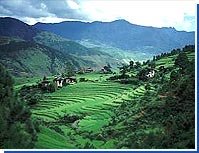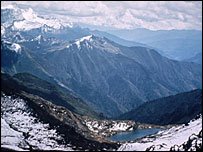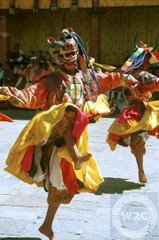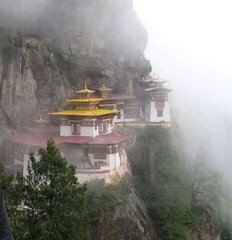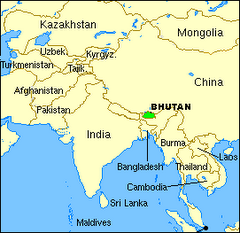-On August 8,1949, Bhutan gained its independence from India
-When the Chinese People's Liberation Army entered Tibet in 1951, Bhutan closed its border on the north and improved its relations with India. It also began a program to modernize, which was funded largely by India.
-In 1953, the country's legislature, the National Assembly, was established to create a more democratic form of government in Bhutan
-In 1971. Bhutan joined the United Nations
-Bhutan is currently an absolute monarchy, but is expected to become a constitutional monarchy by 2008
-In 1998, King Jigme Singye Wangchuck made reforms in the government and transferred most of his powers to the Prime Minister
-In 1999, the prohibition on television and the Internet was lifted, in an attempt to increase Bhutan's Gross National Happiness
-In December 2006 the King of Bhutan abdicated the throne, and his son, Jigme Khesar Namgyel Wangchuck became the new king
-Bhutan currently has no constitution. However, a draft constitution was created in 2005 and is expected to be adopted by the government in 2008
-The legal system of Bhutan is based on Indian and English laws
Thursday, May 17, 2007
Subscribe to:
Comments (Atom)
Paro Tsechu
Paro Tsechu is a religious festival held in Bhutan.
